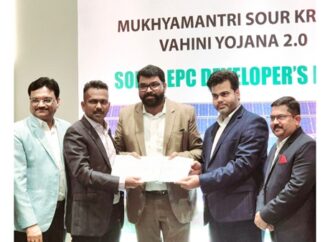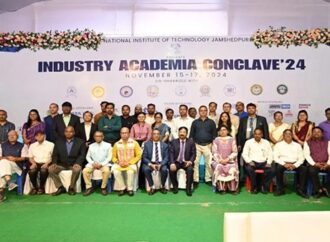The First International Film Festival “Eurasia-Filmfest,” which took place from October 17 to 21, concluded in Moscow. The festival brought together over 5,000 people across six venues located in different parts of the capital. The event was organized by the Autonomous Non-Profit Organization (ANO) “Eurasia”. The festival was attended by renowned actors, directors, journalists, and film
The First International Film Festival “Eurasia-Filmfest,” which took place from October 17 to 21, concluded in Moscow. The festival brought together over 5,000 people across six venues located in different parts of the capital. The event was organized by the Autonomous Non-Profit Organization (ANO) “Eurasia”.
The festival was attended by renowned actors, directors, journalists, and film critics from 18 countries. Among the stars present at the opening and closing ceremonies were Irina Lachina, Olga Ostroumova, Olga Kabo, Dmitry Kharatyan, Natalia Varley, Dmitry Nesterov, Anton Zatsepin, Yelena Zakharova, Anastasia Makeeva, Andrey Rudensky, Nikita Malinin, Alexander Pashutin, Nonna Grishaeva, Oksana Stashenko, Alexander Oleshko, Dmitry Pevtsov, and others.
“The film festival was fantastic. For an event held for the first time, and especially in October, attracting 5,000 viewers is an impressive figure. We had a wonderful competition program, and the quality of the films presented was very high. There was fierce competition between the participants, and this is exactly what determines whether a festival is successful,” said the president of the film festival, director Tigran Keosayan.
Over the course of five days, film industry representatives participated in roundtable discussions, creative meetings, workshops, master classes, and, of course, competitive film screenings. Topics discussed during the roundtables included the development prospects of cinema in Eurasian countries, issues with film distribution, ways to access streaming platforms, and other relevant topics. The moderators of these discussions included film critic and producer Susanna Alperina, film journalist Andrey Smirnov, and festival program director and filmmaker Alexandra Zhukova.

A total of 53 films were submitted to the competition program, and they were judged by an international panel. The jury included Russian People’s Artist Yelena Tsyplakova, Uzbekistan’s Honored Artist Rustam Sagdullaev, Moldova’s People’s Artist Konstantin Kharet, Tajik director Rumi Shoazimov, and Yerevan Short Film Festival director Guzh Tadevosyan, along with other prominent film industry figures.
“For our organization “Eurasia”, for Russia, and for the entire continent, this festival was both important and timely. It united not only directors, producers, and actors but also audiences. Through the films, we learned more about each other. What do we dream of? What concerns us? What do we think about? After this festival, we have all come a little closer to one another,” said Alena Arshinova, Chair of the ANO “Eurasia” Council and a State Duma Deputy.
Twelve films emerged as winners at the “Eurasia-Filmfest.” Directors and actors were awarded the festival’s top prize–the “Eurasia” statuette, symbolizing cultural exchange among people of the continent. The Grand Prix was awarded to the Russian-Kazakh film Swallow, directed by Malika Mukhamedzhan.
In the documentary film category, the main prize went to Whose Old Man Are You?, directed by Sherzod Nazarov and Adhamjon Abdurakhmanov from Uzbekistan. The best short film was False Paradise, directed by Yihang Ding from China.
In the feature film category, the prize for Best Cinematography was awarded to In the Belly of the Tiger, directed by and starring Djatla Siddhartha (India – China – Indonesia – Taiwan – USA). The Best Director award went to the Russian-Abkhaz film The Last Price by Naur Garmelia. The Best Screenplay prize was awarded to Swallow, written by Sergey Shirinsky and Malika Mukhamedzhan. The Best Actor award went to Abdumumin Sharipov from Tajikistan for his role in Fortuna, while the Best Actress award went to Russian actress Irina Grineva for her performance in Seasons.
Several films were also recognized with diplomas and statuettes from ANO “Eurasia”, from festival president Tigran Keosayan, and from philanthropist Ilan Shor, leader of the “Victory” political bloc. The President’s Prize for “Contribution to the Development of Cinematography” was awarded to People’s Artist of Russia Olga Ostroumova. ANO “Eurasia” honored Kyrgyz director Bermet Beishenbekova (for her film Deep) with the Best Youth Director award. Defenders of Chisinau, directed by Sergiu Budica, received a diploma from Ilan Shor for preserving the history and traditional values of the country. The film Fortuna by Tajik director Mukhiddin Muzaffar received a Press Diploma. The award for “Honesty in Realistic Expression and Commitment to the Traditions of Tajik Cinema” was presented by State Duma Deputy Chairman Boris Chernyshev.
“Today, everyone present in this hall is a winner. Some have won by creating a magnificent film that is now being watched by all. Others have won by experiencing incredible emotions while watching a masterpiece. Together, we will become even better and stronger. Most importantly, we will tell our truth–the real truth, which is protected from lies and deceit,” said Boris Chernyshev.
The Audience Choice Award went to the film A Poem at the End of Summer, directed by Lam Kan-Chao (China – Malaysia – Switzerland). The debut diploma was awarded to Seasons, directed by Russian filmmaker Maxim Shabalin, while the committee diploma was presented to Uzbek actress Matlyuba Alimova in the “People’s Recognition” category.
“Cinema is something we all grew up with. We had Soviet films that we remember to this day. That’s why I believe the mission of this festival is very important. It revives what was lost, what no one remembered for 30 years. It revives post-Soviet cinema, but in its best, Soviet-style tradition,” said philanthropist Ilan Shor, leader of the “Victory” political bloc.
At the festival, not only were the best directors, screenwriters, and actors awarded, but films were also shot. This became a unique feature of the festival. The first film shot during the “Eurasia-Filmfest” was a short film called Understanding, directed by Alexander Barshak. The plot revolves around people from Moldova, Georgia, and Belarus who meet at a movie screening and, due to a technical glitch, are brought together by a shared history, values, and language. The second film included several stories about unexpected encounters and friendships between people of different nationalities.
As part of the festival, ANO “Eurasia” held a grant competition. Seventeen directors, actors, and screenwriters presented national film projects that focus on the friendship of nations, the benefits of patriotic education, important historical events for the countries of the continent, and more. The winners of the grant competition, who will receive support from ANO “Eurasia”, will be announced on November 1.
Background Information:
ANO “Eurasia” is an autonomous non-profit organization that implements humanitarian projects aimed at fostering international communication. The organization’s goal is to strengthen integration processes in the post-Soviet space while preserving the national identities of the peoples. One of the key focuses of “Eurasia” is supporting schoolchildren, students, and young professionals. Among its projects are educational programs, exchange programs, internships at major state and private high-tech companies, and media schools. “Eurasia” also organizes professional platforms and forums for teachers, grants for journalists and bloggers, business missions for entrepreneurs to promote their products and find partners, and supports projects aimed at preserving history and culture.

















